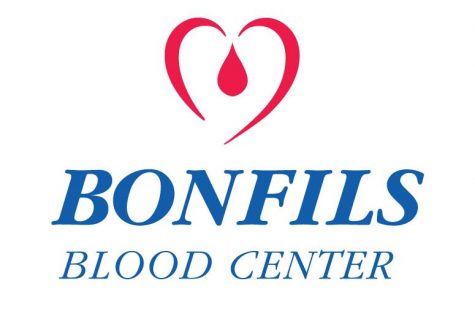“A year ago I was in a mental hospital”
Fact: 1 in 5 children between the ages 13-18 have a mental health condition, published in a report by the National Association on Mental Illness. My name is Karen Manley, and on this day last year I was admitted to a mental hospital.
Now, it’s possible that some of you may have read my article last December, just two months after being released. This was an attempt to overpower my mind, a cure-all for my disorder (at the time, depression, now acute bipolar.) The article worked for me in a similar way to the hospital; it got me through the crisis, a temporary fix.
I intend to make this article much more permanent, more powerful. I want others to learn from my mistakes and be inspired to help themselves get better. I am going to make a difference in the stigma of mental illness.
It is irrefutable that individuals with mental illness are stigmatized. According to the Child Mind Institute, 17.1 million children under the age of 18 in the United States alone suffer from some sort of psychiatric illness. And yet, as adults, only 44% of people have received help. There’s lots of reasons that this could be – from being worried about how one will be treated, to being scared that there isn’t a fix, to just not knowing where to start. Feeling stigmatized has made me completely shut down at times. I believe it comes from the perception of those struggling with mental illness. It’s hard to unlearn that a friend is deeply unhappy, and it becomes difficult to view them in the same light.
Emotionally, I felt as though I had something to hide. I felt shame. I wanted to protect the people around me and help their lives remain happy. At some point, society had taught me there was something wrong with me if I felt this way. I was embarrassed and because of this I was afraid to ask for help. It took me four years to tell my own parents.
Something people don’t understand is that nothing happened to me. I didn’t experience some horrific, scarring event. I wasn’t abused or raped. I had a good life. But at some point, around twelve or thirteen, I started realizing that I spent a lot of my life sad.
In an article early last year, prior to being admitted to the hospital, I talked to students I knew who struggled with mental illness. The only way I was able to get interviews was through anonymity of my subjects.
This is due to the fact that people who do not suffer with mental illness are rarely able to grasp the idea and emotions their loved ones are feeling. Nights were the worst. I would sit in my room, sobbing, scratching my skin raw, and thinking way too much. I wondered what it’d be like if I didn’t exist. I knew it would hurt my family and friends, but that didn’t make it any harder to disappear. One night, I came to my mom in tears and told her, to her face, that I wished I was dead–my saying that damaged her deeply, and knowing that will never stop hurting.
These nights of anguish in combination with my general attitude about life are what put me in the hospital.
While there, I met an incredible group of people. We had all been through some really hard times, and yet each of them was really fun and quirky and normal. They completely shattered my mental image of a psychiatric ward. They are what gave me the confidence to write to such a large population about my disorder, and I couldn’t be more grateful.
For me, it took a long time to be at peace with my mood disorder. I was just frustrated that it wasn’t going away tired of everything being hard for me, even things that were supposed to be fun. There are still times like that. I have days where I am hypomanic; mean, shaking, loud, and everything feels too fast. Then other days, I am so depressed I can’t breathe or move or live.
Being forced to get help and choosing to are very different experiences. Just being in the hospital or going to therapy doesn’t mean you’re going to get better. You can’t just go through the motions; you have to want it. The moment I began to want to live again was upon receiving a letter from my little brother, my second night in the hospital. “I hope you’re having enough fun to stay alive,” it said. There’s nothing that can prepare you for a sentence like that. It tore the air from my entire being. Those nine words changed my life.
After that moment, I vowed to get better. I tried all sorts of coping mechanisms: everything from deep breaths to writing narratives for the school paper. But above all, I made my mental health my first priority. I learned that things like school need to take a back seat if they are stressing you out and your life is on the line. I ended up dropping math so that I could have a free period for therapy. I let all of my teachers know what was going on and kept my parents in the loop of my day-to-day mood fluctuation. It felt so good to finally be getting help. When people know, they care.
That’s not to say of course, that avoiding your problems or expecting people to treat you differently is the way live forever. Rather, after it gets you through the hardest moments, being reminded of it all the time is smothering, and can make it worse again.
Effective long-term solutions include therapy, medication, and self regulation. While the first two are self explanatory, the later is not as straightforward. People were constantly telling me to exercise and think happy thoughts. These are the sorts of things that came to mind when I heard the words “self-regulate.” I thought it was a joke. I have a chemical imbalance in my brain, not a pessimistic personality. I couldn’t just think myself out of depression. However, upon reading the note from my brother, I understood. It isn’t a solution but rather, it is a mindset. For as long as I blamed every shift in emotion on my illness, I was only giving it power.
I take a total of three medicines directly to aid with my disorder, so I’m never going to be one to advertise “have a positive attitude and you’ll be cured,” but I really do believe that my mindset played the biggest role in my recovery. Most days were hard, but I took each day individually and looked to each tomorrow as a new opportunity and a fresh start.
I am now living a happy life. It never fully goes away. There are always bad days. But I promise, you are not at your end. Life gets better. I believe in you. If you’re unsafe, contact the crisis text line here. For more information and to learn how to help your loved ones, click here.
Your donation will support the student journalists of Fossil Ridge High School. Your contribution will allow us to purchase equipment and cover our annual website hosting costs.

Karen Manley, a senior, has been in the journalism program since her freshman year. She feels most at home when writing about Unified Sports and activities, mental health, and other topics that people may not pay enough attention too. This year, Karen will be Co-Editor in Chief. Her responsibilities...














Austrie • Oct 31, 2017 at 8:58 am
I really enjoyed reading this, Karen. I think it’s important that people speak out about mental illness. It almost feels like a weight has been lifted off my shoulders when talk with others about my struggles with mental illness.
Thank you for sharing.
Anonymous Guy • Oct 23, 2017 at 9:05 pm
Thank you. I find it really amazing what you are trying to do by writing these articles and I just want to let you know that it is having an impact and to keep on doing what you’re doing, in your own words, “Smashing the stigma surrounding mental illness”
Anonymous Guy • Oct 22, 2017 at 9:45 pm
I really love your article because as a person who doesn’t struggle from a mental illness it sheds a lot of light on what people who have such diseases go through. My one question is about the thing that having a positive mindset helps. Does this mean that it is possible to control your mood fluctuations and symptoms of your disease through a positive attitude and mental discipline or that having a positive attitude will merely help these things but not fix them entirely. (please forgive if the question sounds stupid I’m not very knowledgeable about this sort of thing). In a way my question is, to what degree do you have control over your own emotions and feeling/behavior.
Karen Manley • Oct 23, 2017 at 4:28 pm
Thank you so much for asking! The best way I can answer your question is this; the more you work on redirecting your thoughts, the easier it becomes. Though “easy” is a subjective word and no part of keeping bipolar in check is a simple feat, I can say this: Therapy and the support of those around me have helped me to build up that “muscle memory” of reminding my mind to stay on track and focused on trying to return to a happy state of mind. So yes, it is a mindset, but the chemical part of mental illness makes it near impossible to remain in that mindset given any circumstance. This is why the whole “just think happy thoughts” form of support is ineffective. And, as with any mental illness, there are times when bipolar gets the best of me and I must ride it out. I know this isn’t a straightforward answer but in my experience, each time is different and must be treated as such. I hope this answers your question.
Megan • Oct 19, 2017 at 7:51 am
Karen you are such a strong person and are making a difference in peoples lives everyday! keep working hard and showing people how to work through it. I have people in my family going through the same, so i know what its like. stay strong and you can always come to me if you need anything or just want to talk. Im always here for you 🙂
Tommy • Oct 19, 2017 at 7:50 am
I new that a lot of people had depression but i never really realized that it actually affects and plays a role in people our age’s life.
Maddi • Oct 18, 2017 at 9:24 am
This was a wonderful article, and honestly im close to tears in my English class. Mental illness is something i struggle with a lot, and the thought of getting help is a scary one, but slowly are surely I’m on my way there. You are so brave and strong and im so proud of you! Much love <3
Serena • Oct 13, 2017 at 5:54 pm
Thanks for making me cry <3
Cami Corp • Oct 13, 2017 at 5:40 pm
Thank you for this article. It brings to light the horror and importance of mental illness in such a necessary way. I’m so grateful you’re still here with us. Thank you for being brave, sending so much love your way